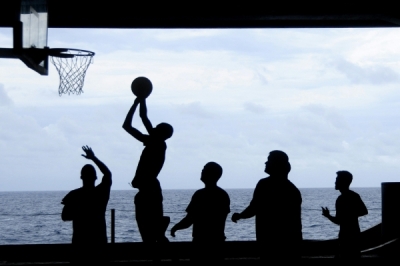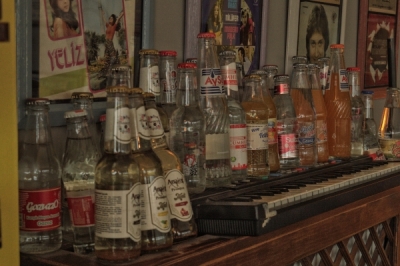Generation Z encompasses those born between 1995 and 2010 (today aged between 12 and 28 years old). It is the generation that grew up with the Internet, characterized by the mastery of new technologies. This is a group popularly - and perhaps even a little pejoratively - known as the "bedroom generation" because they spend a lot of time isolated and in front of screens, receiving a large amount of information and establishing superficial connections, usually at the expense of a impoverishment of deeper daily interaction with family members and close people.
Surveys from around the world, especially in high-income countries, have shown that alcohol consumption among young people from generation Z is decreasing both due to greater abstention in this age group and a reduction in consumption. Thus, there are important indications that young people are choosing to drink less and those who do tend to start later, drink less frequently, consume in smaller quantities and are less likely to get drunk (1).
A study conducted in the United Kingdom (2) found that, in 2019, the generation aged 16 to 25 was the most abstemious — 26% of them did not drink, compared to 15% among the generation that drinks the most (55 to 74 years of age ). Among Americans, another study indicated that the number of university-age abstainers increased from 20% to 28% in a decade (3).
With regard to the amount and frequency of consumption, recently, a study by the National Institute on Drug Abuse (NIDA) showed that, in the United States, there was a reduction in alcohol and drug consumption by the younger population (13 to 20 years old) (4). Among the age group of 18 to 20 years, for example, the prevalence of binge drinking decreased from 10.7% to 8.8% between 2019 and 2020. However, the researchers mentioned that this reduction was already observed before the pandemic, supporting the hypothesis that it is a stable trend among younger people, and not just a socialization restriction condition imposed by the pandemic.
In Brazil, the CISA analysis based on data from Vigitel (2021) – System for Surveillance of Risk Factors for Chronic Diseases by Telephone Survey – showed that abusive consumption among young people aged 18 to 24 reached 19.3%, lowest rate since 2015 (5). Among men, abusive consumption was 22.1%, the lowest incidence since 2006; among women, the incidence was 16.1%, one of the lowest in the entire survey period (2006-2021). However, as this is a survey carried out during the pandemic period, it is still not possible to say whether this decrease in consumption is a change in behavior or a temporary event caused by the pandemic (due to reduced socialization). PeNSE (2019) – National School Health Survey – for example, showed that among schoolchildren aged 13 to 17 years there is stability in relation to alcohol consumption compared to previous surveys, with an increase in alcohol experimentation among girls in this age group (6) , reinforcing the need for more data to confirm trends in alcohol consumption among young people in Brazil.
What would be the reasons for generation Z to drink less?
It is possible to infer some reasons why this generation “perhaps” is not “so interested” in alcohol:
- Increased awareness of the harmful effects of alcohol.
- Changes in the family structure that made adolescents have more open communication with their parents about alcohol-related issues.
- Changes in social and cultural norms, causing adolescents' attitudes to become less tolerant of alcohol consumption.
- Movements such as Mindful Drinkers and Sober Curious that stimulate self-observation by pausing or reducing consumption.
- Getting sober for physical and mental health reasons, and without stigma.
Alcohol is (still) a substance that draws the attention of young people and adolescents because, traditionally, it is related to the rite of passage into adulthood and works as a “social lubricant” in various situations. And because this is a key period for experimentation and risk-taking, it's a particularly risky time to drink, not just because of the impact alcohol can have on young people's brain development, but also because of the danger of early initiation, which increases the risk of abusive consumption and dependence in the future (1). Thus, data such as these are important (and encouraging) with regard to the perspective of preventing alcohol abuse by young people, mainly for public health. However, it is a sensitive topic and still requires more research in different regions, attention from authorities, health professionals, parents and educators.











